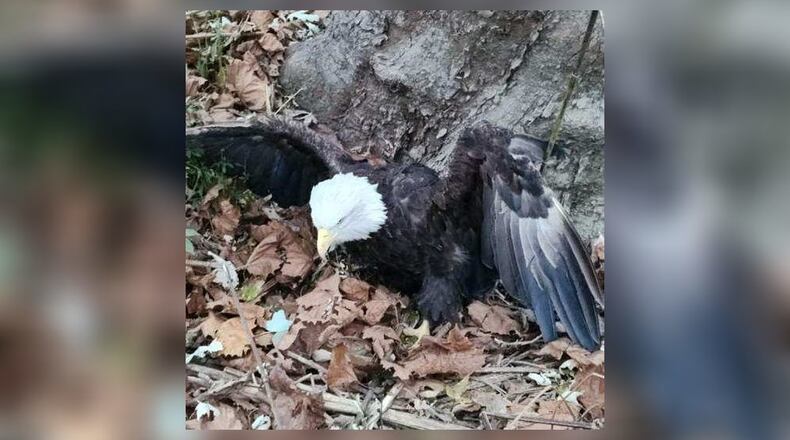“It was readily apparent to the rangers that the bald eagle was injured, but not what the specific injury was,” said Mark Hess, chief of public safety at Five Rivers MetroParks.
The eagle was unable to fly, he said.
The raptor had been receiving fluids and medications, the center posted on Facebook.
Rebecca Jaramillo, director of the raptor center, said Thursday that the eagle died Wednesday night.
“Despite our best efforts, the eagle passed away last night,” read a Facebook post from the raptor center. “He had no physical injuries and judging from where he was found our best assumptions are some sort of injected toxin such as lead sinkers or pesticide poisoning.”
Jim Weller, local eagle expert and founder of the Eastwood Eagle Watchers, said poisoning from lead is a common issue for bald eagles and is typically from eating prey or remains of game animals that were either shot or had ingested fishing weights.
The raptor center encouraged people to use non-toxic methods to manage critters and other pests, as well as use non-lead fishing tackle and bullets.
“So many other animals find themselves in the same awful place as this eagle did,” the Facebook post read.
Anyone who spots an injured or ill bald eagle is urged to call the authorities or a wildlife agency, Weller said. They’ll arrange for someone to recover the raptor and get it to the proper agency for treatment.
He noted it’s illegal to own any part of a bald eagle, including a feather, so people should not try to take an eagle home and nurse it back to health.
Weller also reminded people that eagles will be more visible as leaves continue to fall from trees. He encouraged people to give them space and be respectful.
Bald eagles typically spend the upcoming months building out their nests in preparation for laying eggs in mid-February. People getting too close to nests or eagles or causing a lot of commotion can disrupt the eagles’ mating and breeding processes, Weller said.
About the Author

